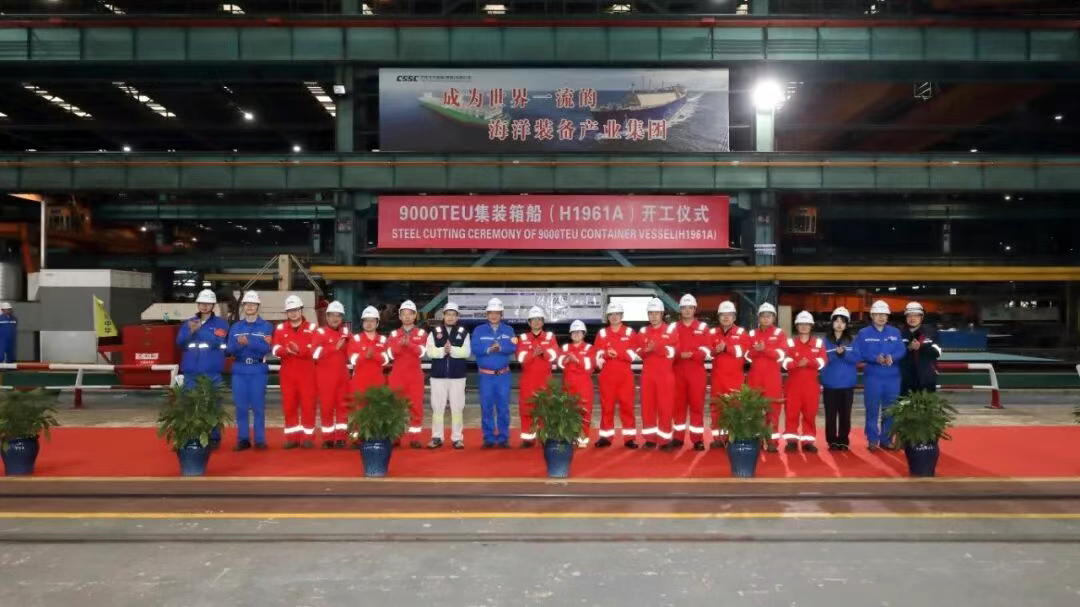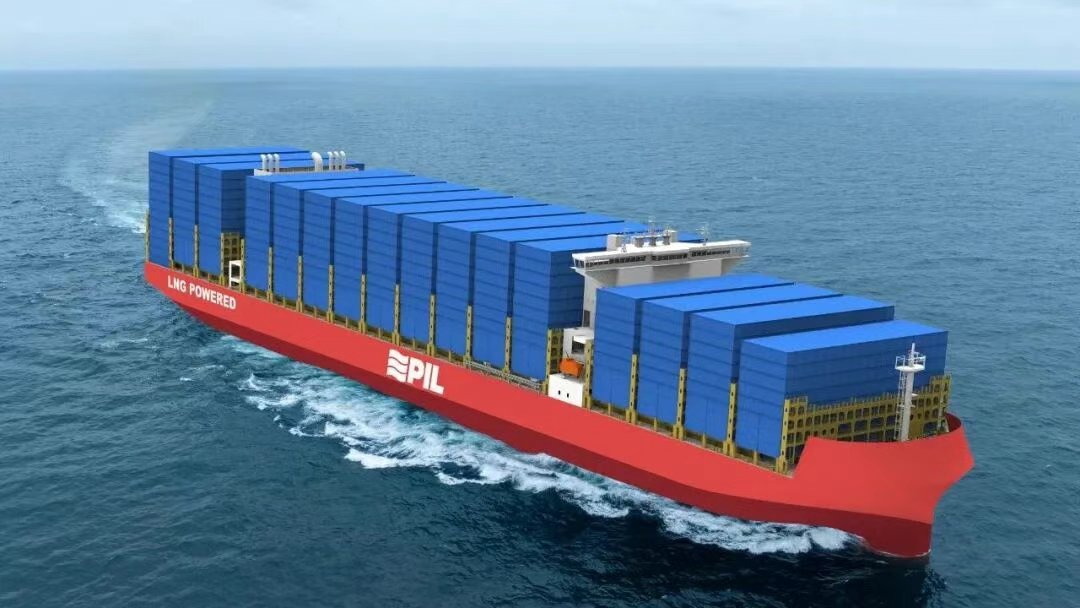On November 17, China’s leading shipbuilders, Hudong-Zhonghua Shipbuilding (Group) kicked off construction of the first 9,000 TEU dual-fuel container vessel for Pacific International Lines (PIL) at the company’s Western Shipyard’s Manufacturing Division 2.

The 9,000 TEU dual-fuel container vessel is a green and environmentally friendly container vessel independently developed and designed by Hudong-Zhonghua Shipbuilding, specifically tailored to the operational characteristics of PIL. With an overall length of approximately 274 meters, a beam of 45.6 meters, and a depth of 24.8 meters, it boasts a maximum container capacity of 9,040 TEU and can carry 1,308 refrigerated containers.
Additionally, the vessel is equipped with an LNG dual-fuel propulsion system and features a 7,600-cubic-meter Type B LNG fuel tank independently developed by Hudong-Zhonghua, ensuring a range of 13,000 nautical miles in gas mode. This vessel also marks the third practical application of the company’s independently designed Type B LNG tank brand.

Notably, this vessel incorporates the latest design concepts, with enhanced green and eco-friendly performance. It is equipped with a high-efficiency main engine, energy-saving devices, shaft generators and a high-voltage shore power system. The bow features a proprietary wind deflector to further reduce navigation resistance. Notably, the installation of scrubbers enables shipowners to flexibly switch fuel types based on market conditions, significantly enhancing operational convenience. This series of innovative designs endows the vessel with low comprehensive energy consumption, high speed, and superior environmental performance.
The order was signed in November 2024 and consists of five 9,000 TEU LNG dual-fuel container vessels, scheduled for delivery between 2027 and 2028.
Notably, in August 2024, PIL had also ordered five LNG dual-fuel container vessels with 13,000 TEU capacity from Hudong-Zhonghua. Similar to the earlier orders, these new vessels will also be equipped with the latest in digital technologies. These include Artificial Intelligence (AI) and Internet of Things (IoT) for real-time monitoring and automation of various tasks. The enhanced digital capabilities will enable better route planning and cargo management, ensuring timely and reliable service to customers.


